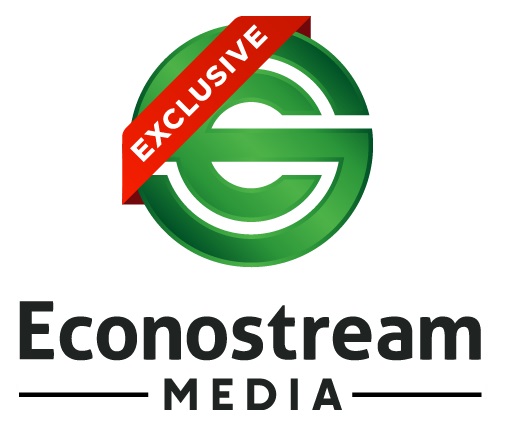Exclusive: ECB’s Centeno: Must Act if Growth Remains Flat and Inflation Stays Close to 1%
7 July 2025

By Marta Vilar – SINTRA, Portugal (Econostream) – The European Central Bank should react if economic growth continues to stagnate and inflation stays close to 1% in the coming quarters, according to ECB Governing Council member Mário Centeno.
In an interview with Econostream on Wednesday (transcript here), Centeno, who heads the Banco de Portugal, said that undershooting inflation was currently the main risk for the ECB.
‘If economic growth is flat in the next couple of quarters, investment doesn’t pick up, and inflation remains close to 1%, we will have to do something’, he added.
As in the ECB’s June projections, risks were now tilted to the downside, he said.
Centeno expressed doubt about the realisation of projected public investment and whether NextGenEU expenditures would be completed within the expected timeframe.
Asked if an additional 25bp cut would lead to an economy compatible with 2%, Centeno said that if growth did not recovery, ‘with the current numbers we will still be restrictive at 2%’.
Whether lowering rates to 1.75% would be sufficient would depend on the European economy’s ability to recover while keeping inflation at 2%, he said.
‘I don’t know if 25bp will do the trick’, he said. ‘But the amount and timing of further cuts are difficult to say. It all depends on how things play out in terms of investment, labour market, and of course prices at the end.’
Centeno said it was ‘conceivable’ to cut or pause in the July meeting.
‘We are still waiting for the Q2 GDP data, and for everything to hold as we move to Q3 and Q4, we need economic activity to pick up’, he added.
Were it not for the expected impact from the ETS, inflation would stay below 2% in 2027, he said.
Commenting on potential supply chain disruptions from US tariffs, Centeno said the ECB should account for this possibility in its scenarios, though he was doubtful that the risk would actually materialise.
‘So far, tariffs affect only a small fraction of global production, in the sectors in which tariffs are implemented’, he said. ‘I don't see how we could end up with supply chain disruptions unless we entered a war with suppliers of specific goods.’
The diversion of inexpensive Chinese products to Europe as a consequence of the trade war would have a ‘significant’ impact, he said.
Asked about the estimated impact of higher fiscal spending, Centeno said that public expenditures were usually overestimated as it was always assumed that they would be fully implemented.
‘So, there is a big risk that the level of investment will fall short of what is projected’, he said.
If the economy lacked the strength to support the euro’s appreciation, a correction in the exchange rate was likely, he said.
